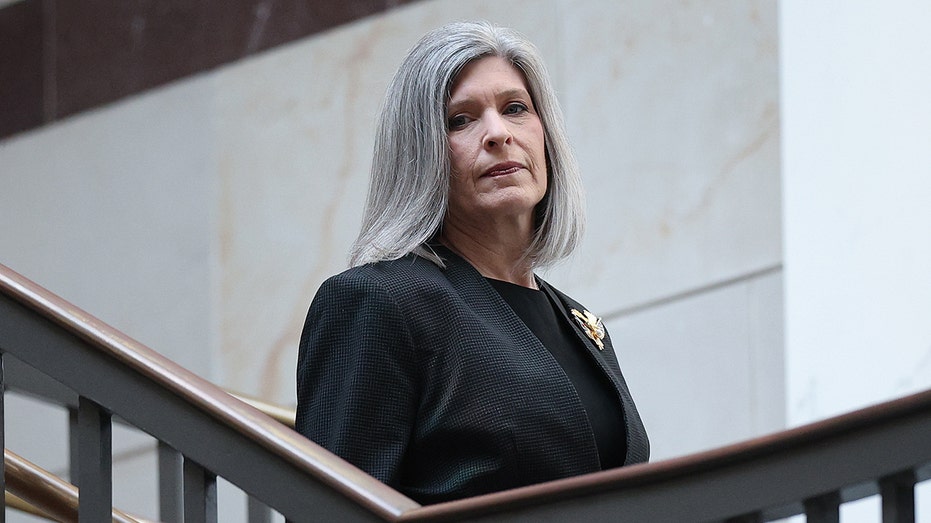Republican Sen. Joni Ernst of Iowa won’t seek re-election: sources

Republican Sen. Joni Ernst of Iowa will not run for re-election in next year’s midterms, three sources confirm to Fox News.
And the 55-year-old Ernst, who was first elected to the Senate in 2014, is expected to make an official announcement next week.
Ernst, a retired Army Reserve and Iowa National Guard officer who served in the Iraq War, has been wrestling for months whether to run for re-election in 2026.
The senator’s decision to retire rather than seek a third six-year term creates an open seat in Iowa.
IOWA REPUBLICAN TARGETS GOP SEN JONI ERNST FOR OUSTER, SAYING ‘SHE DOESN’T VOTE LIKE’ REPUBLICANS
GOP Rep. Ashley Hinson, a former TV news anchor who is in her third term representing Iowa’s 2nd Congressional District, which covers the northeastern portion of the state, is planning on running to succeed Ernst, multiple sources confirm to Fox News.
KEY HOUSE GOP MODERATE DON BACON WON’T SEEK RE-ELECTION
Iowa was once a top battleground state that former President Barack Obama carried in his 2008 and 2012 White House victories. But the state has shifted to the right in recent election cycles, with President Donald Trump carrying the state by eight points in 2020 and by 13 points last November.
Republicans currently hold both of the state’s U.S. Senate seats – Ernst and longtime Sen. Chuck Grassley – and all four of Iowa’s congressional districts, as well as all statewide offices except for state auditor, which is held by Democrat Rob Sand, who’s running for governor next year.
But Democrats in Iowa are energized after flipping two GOP-held state Senate seats in special elections so far this year.
Four Democrats are already running for Senate in Iowa. The field includes state Rep. Josh Turek, a Paralympian wheelchair basketball player, state Sen. Zach Wahls, Knoxville Chamber of Commerce executive director Nathan Sage and Des Moines School Board Chair Jackie Norris.
Ernst first grabbed national attention 11 years ago with her “make ’em squeal” ads as she won the high-profile Senate election in the race to succeed retiring longtime Democratic Sen. Tom Harkin.
The senator, thanks to her military background, has often taken the lead on defense issues. She is the first female combat veteran to serve in the Senate, and made combating sexual assault in the military a priority, having been a survivor of sexual assault herself.
Since Trump’s White House victory in 2016, Ernst has tried to strike a balance between her support for the president as she hued to a more traditional Republican agenda.
Earlier this year, Ernst sparked a controversy after she said, “We are all going to die,” when responding a voter at a town hall meeting who raised concerns over Medicaid cuts in the GOP’s sweeping domestic policy bill.
Republicans are aiming to not only defend, but expand, the current 53-47 Senate majority in next year’s elections.
Senate Republicans enjoyed a favorable map in the 2024 cycle as they flipped four seats from blue to red to win back the majority.
But the party in power—clearly the Republicans right now—traditionally faces political headwinds in the midterm elections. Nevertheless, a current read of the 2026 map indicates the GOP may be able to go on offense in some key states.
In battleground Georgia, which Trump narrowly carried in last year’s White House race, Republicans view first-term Sen. Jon Ossoff as the most vulnerable Democrat incumbent up for re-election next year.
They’re also targeting battleground Michigan, where Democratic Sen. Gary Peters is retiring at the end of next year, and swing state New Hampshire, where longtime Democratic Sen. Jeanne Shaheen decided against seeking a fourth six-year term in the Senate.
Also on the NRSC’s target list is blue-leaning Minnesota, where Democratic Sen. Tina Smith isn’t running for re-election.
But the GOP is defending an open seat in battleground North Carolina, where Republican Sen. Thom Tills decided against seeking re-election.



